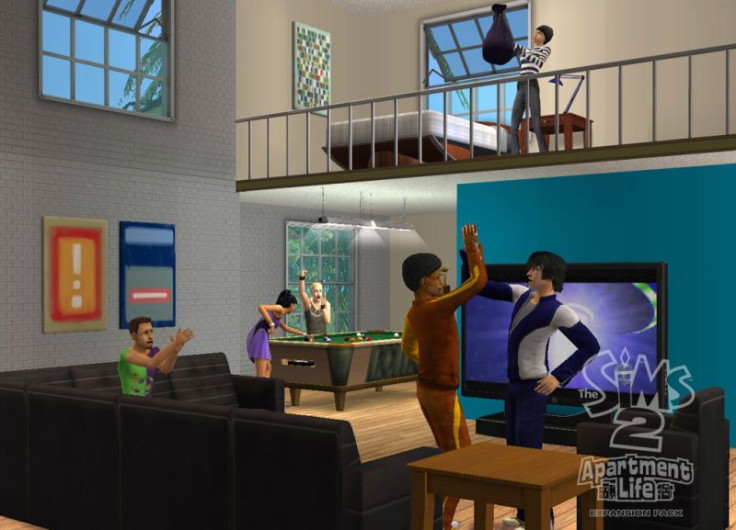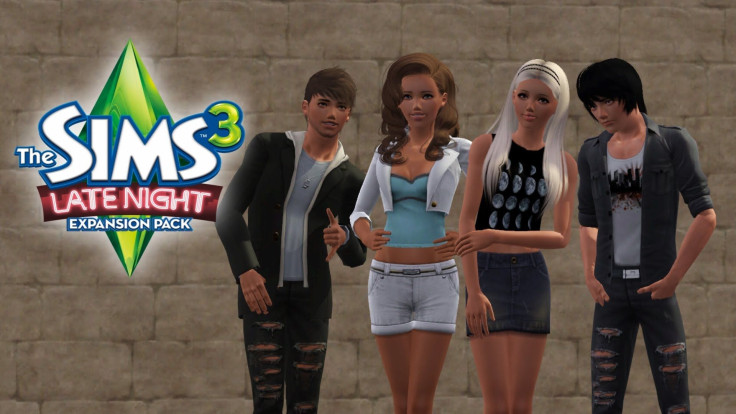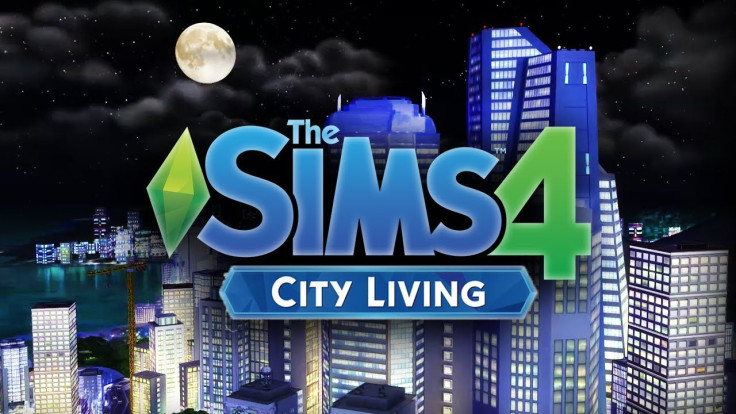Both The Sims 2 and The Sims 3 had city-themed expansion packs. It was only a matter of time before The Sims 4 got one too. City Living, released Nov. 1, brings a the new world of San Myshuno to the game. The city has four neighborhoods, penthouse suites, apartment buildings, townhouses, festivals and three new careers.
You may have noticed San Myshuno looks and feels a lot different than Bridgeport from The Sims 3: Late Night and Belladonna Cove from The Sims 2: Apartment Life. Of course, City Living is an aesthetic upgrade. But while the new expansion pack has brand new features like festivals, career assignments and lot traits, it doesn’t include two big features included with the previous city DLCs: celebrity status and reputation.
Ahead of the City Living release, Sims Producer Grant Rodiek spoke with iDigitalTimes about why the development team chose not to recreate celebrity status or reputation for TS4. It’s obvious from his answer that both features were something the Sims team thought long and hard about. He named quite a few reasons, but ultimately it came down to the fact that celebrity status and reputation aren’t what living day-to-day in the city is all about.

“I think celebrity mostly makes sense to the city because it's something we've done in the past for Sims, but I don't necessarily think is has a whole lot to do with the city per se . Unless you live in Los Angeles or certain parts of New York, you probably don't see celebrities too often.”
Rodiek points out that he’s lived in San Francisco for 11 years and has never seen a famous person. And I can vouch for that. Casual celebrity run-ins aren’t a thing, especially not in the way people from small towns think of them.
“It was one of those things where we really wanted to focus on what it means to live in a city day to day,” Rodiek said.

Instead of the more fantastical elements of ‘the big city,’ the Sims team wanted City Living to accentuate what it’s like to move from the middle of nowhere with just a small savings account, folding chairs for furniture and an apartment that needs some serious TLC.
“Why are cities special and different from living in a neighborhood in Willow Creek or Oasis Springs? A lot of us who aren't native to San Francisco grew up in small towns,” Rodiek told iDigi. “We tried to capture that sense of leaving home, moving your way up through terrible apartments and terrible landlords and finding the opportunities that a city provides that a small town in Texas may not. We wanted to make the normal feel exciting and aspirational.”
There was also some hesitation to add celebrity status because of mixed player feedback. In forum various forum posts from 2013, players called the feature “annoying” and “useless.” Many said they just turned it off altogether.
“It's a little bit of a boogeyman thing for us. We asked our players about this,” Rodiek explained. “Players had some frustration with some of the celebrity elements in The Sims 3 and without really understanding why they didn't like it, we didn't want to step into a land mine of making a mistake that wouldn't make players happy.”
City Living emphasizes cultural diversity as an integral part of living in the city. In addition to traditional clothing garments, Vietnamese, Moroccan, Mexican, Chinese, Japanese, Korean and many more types of cuisines are now available. No previous expansion pack has put a focus on all the cultures and ethnicities that make up a city.
“Something we've really tried to do with Sims 4 is we don't want to just repeat what we’ve done in the past,” Rodiek said. It’s boring for the creative team but it's also harder to get players excited about something we’ve just done.”
Rodiek added that maybe celebrity status can be done differently elsewhere, but this time, the focus was on festivals, culture and city lifestyle. The Sims 4: City Living is available now. Check out our review here.



















